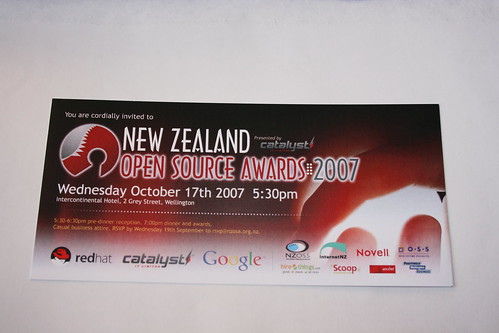I am still flabbergasted by an excellent speech I heard from the NZ IT Minister, David Cunliffe about Open Source at the New Zealand Open Source Awards recently. The speech was excellently written and delivered, and included some excellent tidbits including:
Today the raw material you deal with is not high-tensile steel: it is ones and zeros, data and code. And it makes no more sense to restrict how the raw material of the information age can be used, as it did to say that No 8 wire should be used solely for fencing. Wire, like code, can be put to any number of uses given the license to be creative, or dare I say, ingenious.
As both an elected Member and Minister of ICT, I am acutely aware of open source technologies and the contribution they make to the systems that support our core democratic processes here in New Zealand. For instance, the Register of Electors and the Electoral Management Systems – are built on open source technologies.
As those of you in the industry know, ultimately that capability is about people, not technology. Open source attracts some of the most talented of our developers and affords them the opportunity to engage globally with the best in the business.
And my personal favourite:
I challenge both public and private sector organisations to look again at some of the home-grown open source offerings and ask: Where better to invest than in building our local IT industry and our capability to make the most of what open source has to offer?
I believe there is video forthcoming from the event. There are already a few videos up from the New Zealand Open Source awards, so check it out!
